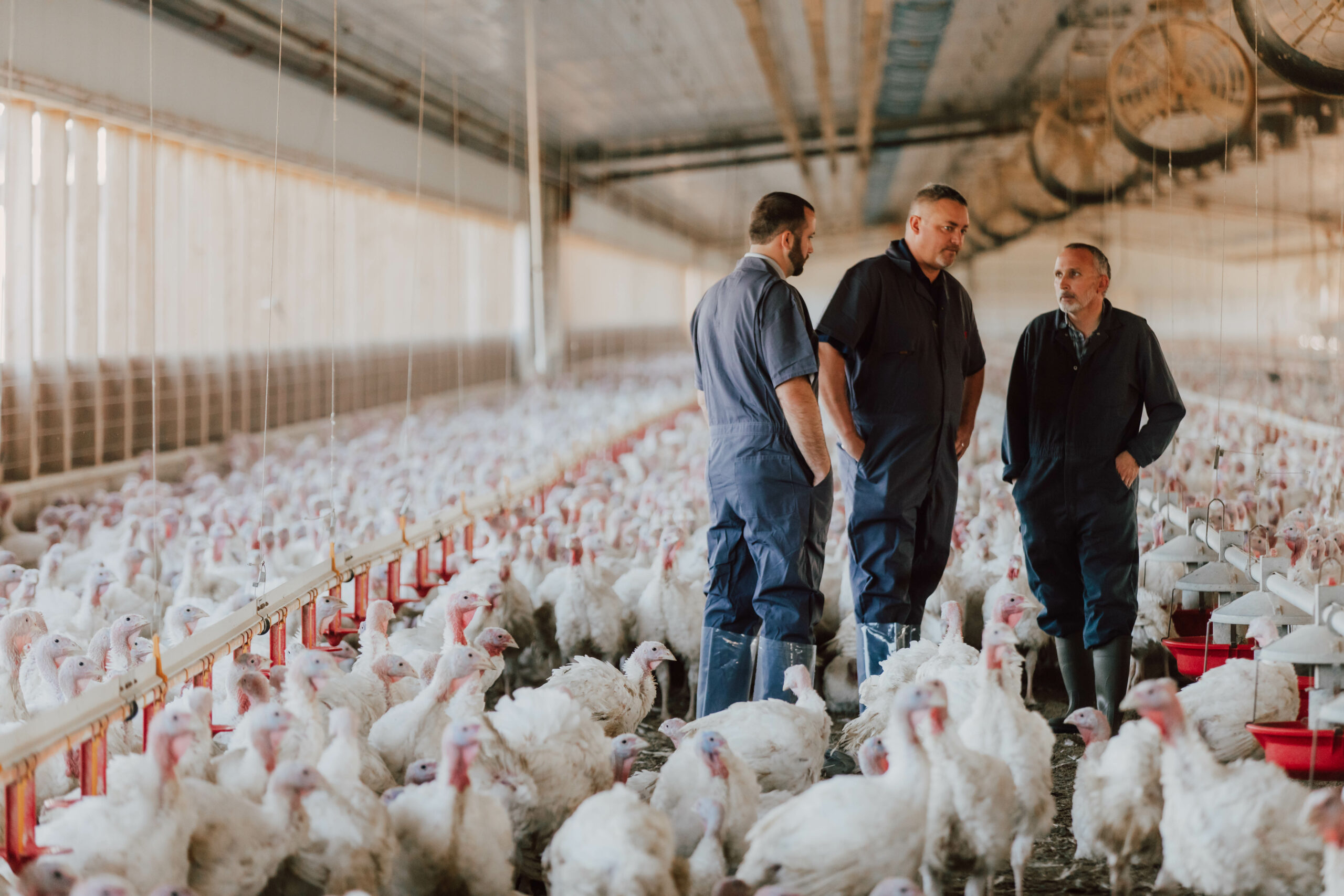By Ashley Gelderman
When considering how to get birds off to a good start, there are many things to consider. If possible, it is best to start poults off on a pellet. For some producers, the economics of bringing in a pellet does not work, but for those that are willing to invest, there are some great benefits. First and foremost, when the birds eat, they are consuming a complete pellet. They are not able to pick and choose what is in their next bite. Conversely, a mash feed has ingredients with different particle sizes so the birds can pick what they want, and for some birds that might mean they pick out all the corn as it normally is not ground as fine as the SBM, vitamins, and minerals. This results in the birds not consuming their complete diet, so they end up lacking in essential vitamins, minerals, amino acids, etc. that are all required in ensuring the poult is getting off to their best start.
With a complete pellet, there is a reduction in the amount of waste that can occur. Granted early on poults do not waste that much feed, but normally starter diets are more expensive because of the need for more protein, vitamins, minerals, and other ingredients that help jumpstart the gut. Pelleting also ensures that birds are spending less energy consuming feed, which is great for the bird as they consume such a small amount of feed early on. Pelleting feed has been shown to initiate starch gelatinization as well as partial denaturation of proteins. What this means is that in the birds’ denaturation and inactivation of antinutritional factors are occurring and causing more of the feed to be digested by the animal and with less damage to the gut.
Now this next part can pertain to all monogastric (single-stomached) animals. The effectiveness of pellets or for that matter any phase of feed is dependent on the quality of ingredients that are being added. Many ingredients are added to the feed depending on the stage of the animal. Take SBM for example, this is purchased from a facility where there have been numerous quality assurance tests performed to make sure that ingredients is meeting the minimum specifications that the plant has declared.
SBM is a great protein source but cannot be fully digested by the animal. This is where feed technology can play a role. One of those feed technologies is enzymes. There are many different enzymes: xylanases, cellulase, α- galactosidase, amylase, phytase, β-glucanase, β-mannanase, and proteases, just to name a few. As feed technology has improved through the years, so has our knowledge and understanding of how these additives work and perform in the animals’ bodies. Through research, we have learned that each enzyme works differently depending on what part of the feed will be broken down. We have also noticed that a combination of enzymes or “enzyme cocktails” work more efficiently.
This is because feedstuffs are complex compounds containing protein, fat, fiber, and other complex carbohydrates, and if you only have one specific enzyme it might not target all of the layers of a substrate. We also need to make sure that the specific enzymes in the diet have something to work on. Simply put, the enzyme must be matched to the feedstuff for it to be effective.
Not all pellets are created equal, so take the time to ensure you are receiving a quality pellet. There should be minimal fines, a consistent color, and a pleasant smell. If you notice a burnt smell, this can mean that the pellet temperature increased too much during the process and this can potentially affect the breakdown of starches, proteins, and potentially any enzymes that were added to the diet. Also, remember that you can be provided with the best nutrition program in the world, but if you are not getting your brooder or nursery set up correctly before animals arrive, the nutrition program is at a disadvantage.
Some keys to consider are making sure that the environment is at the correct temperature, the facility is clean, water lines are cleaned and have water readily available, feed is in the feeders, the bedding is adequate, and so on. If you have any questions on how to start your poults or piglets off to a good start, please contact your Standard Nutrition representative.
